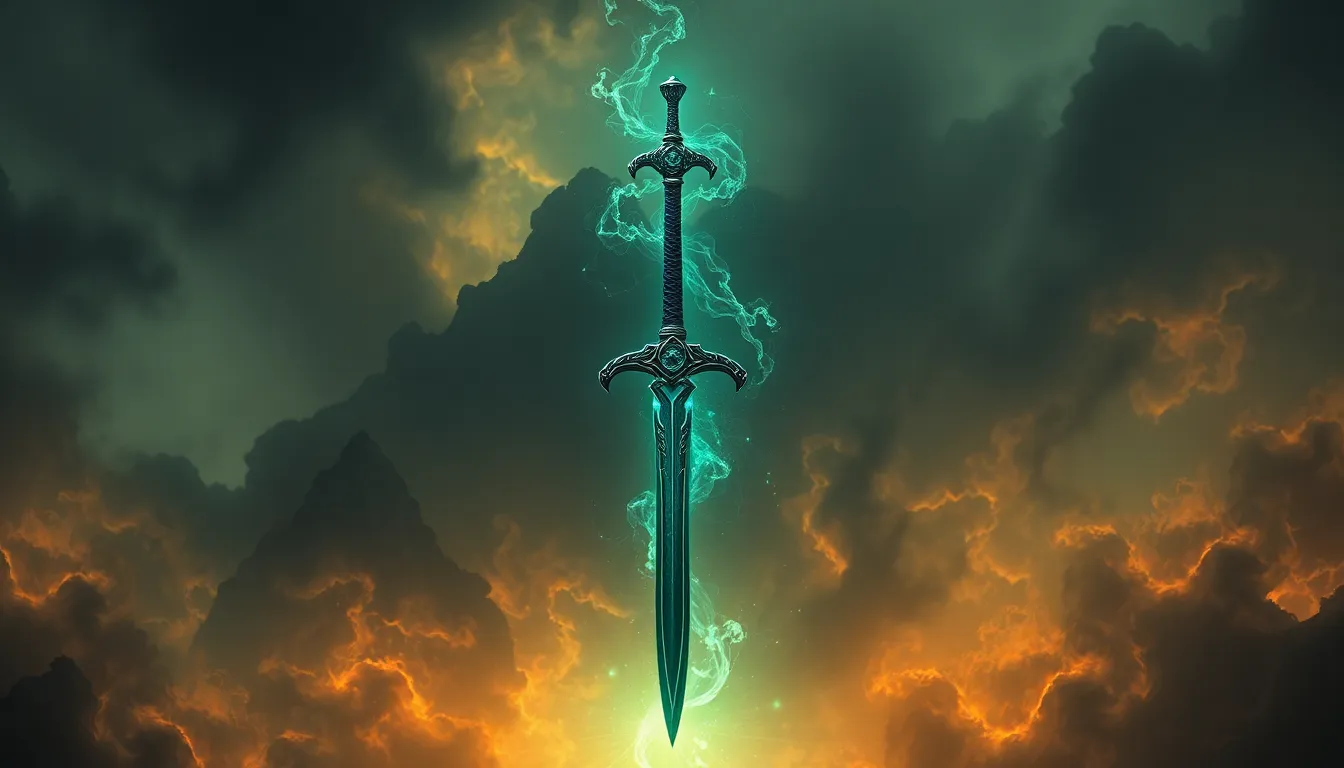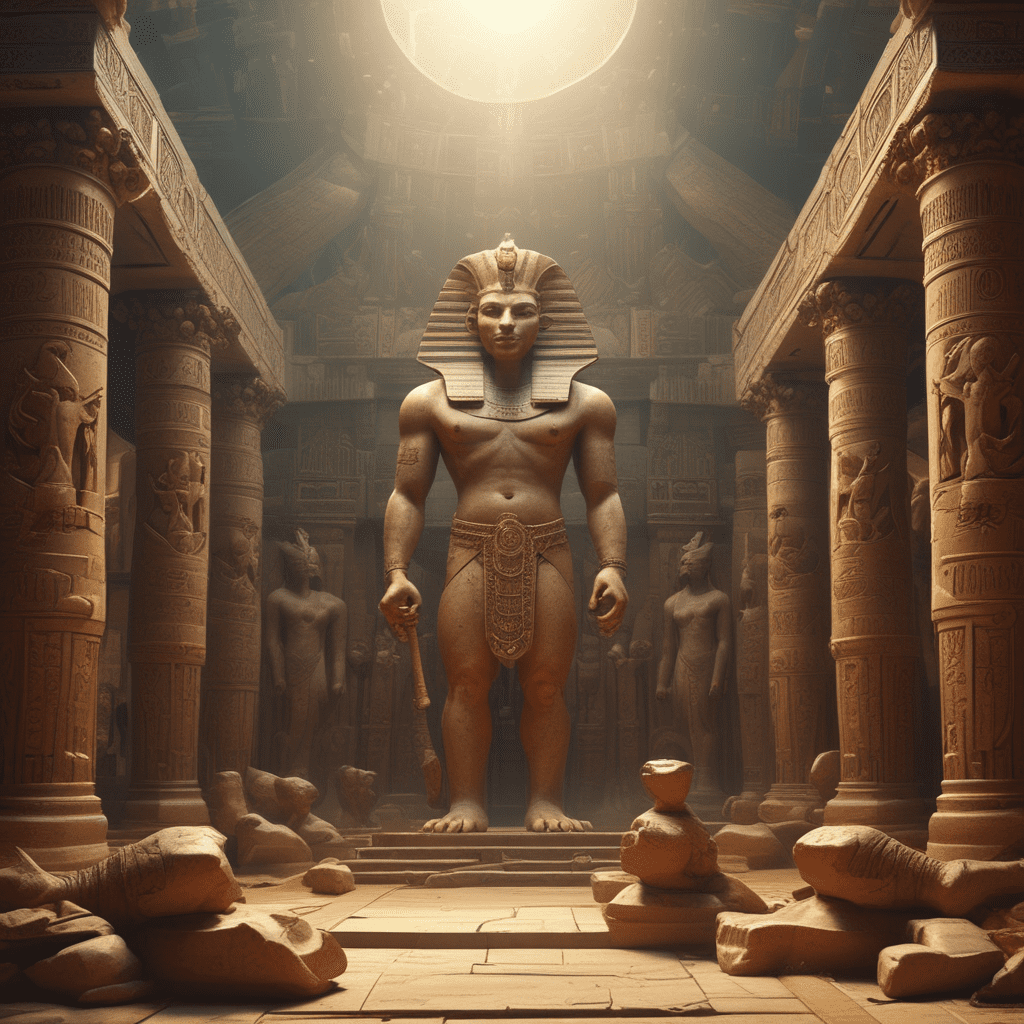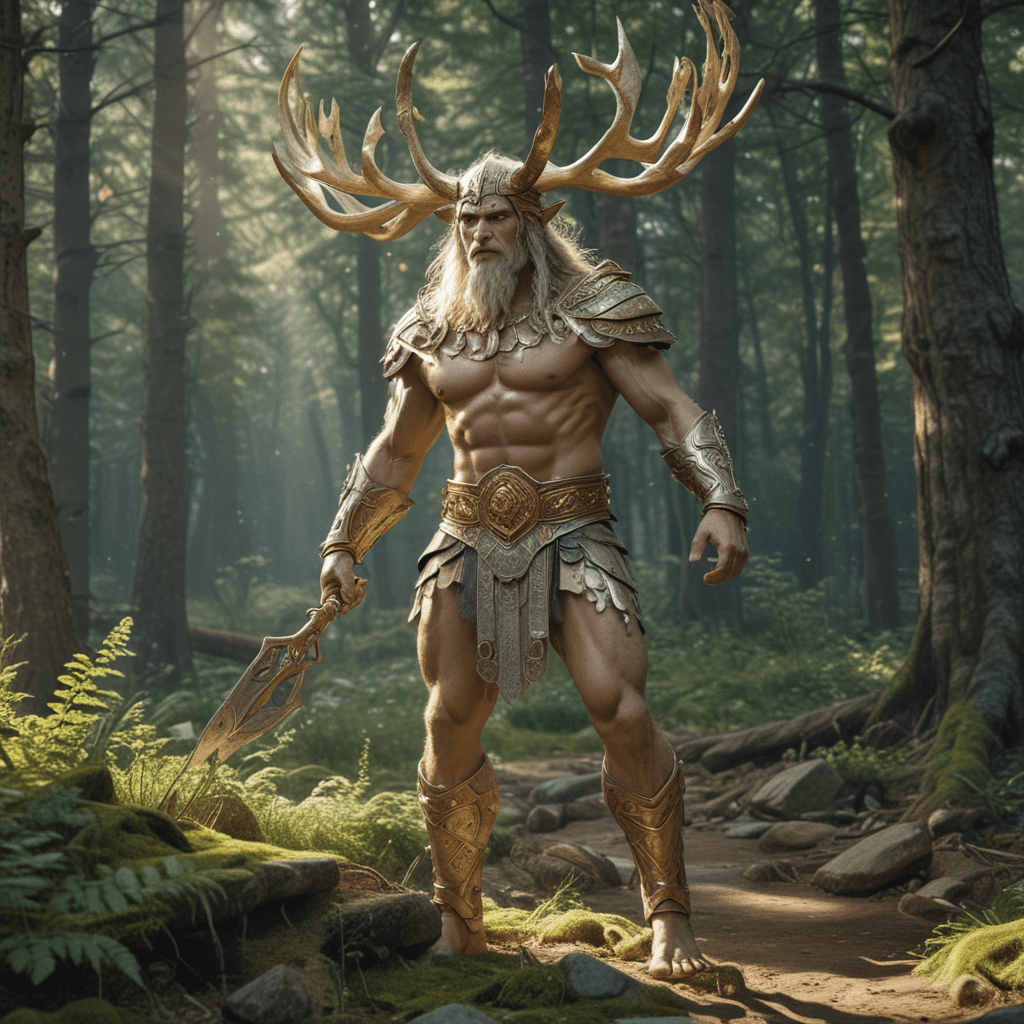The Sword of the Ancients: A Legacy of Power
Introduction to the Sword of the Ancients
The Sword of the Ancients is more than just a weapon; it is a profound symbol steeped in mythology and history. This legendary sword has captured the imagination of countless generations, representing strength, valor, and the eternal struggle between good and evil. Its origins are shrouded in myth, and its cultural impact spans various civilizations, making it a key artifact in the tapestry of human storytelling.
Historical Context: The Era of the Ancients
The era of the Ancients dates back to the earliest recorded civilizations, a time when myths were born out of the collective experiences of humanity. Cultures such as Mesopotamia, Ancient Egypt, and the Indus Valley contributed to the lore surrounding powerful artifacts, including the Sword of the Ancients. These civilizations viewed swords not merely as tools of war but as embodiments of divine power and authority.
The Mythical Origins of the Sword
Numerous myths describe the creation of the Sword of the Ancients, often attributing its forging to deities or legendary blacksmiths. In many narratives, it is said that the sword was crafted from celestial materials, bestowed upon a chosen hero. Key figures associated with its creation include:
- Hephaestus: The Greek god of blacksmiths, often depicted as the craftsman of divine weapons.
- Tuatha Dé Danann: In Irish mythology, these supernatural beings were said to possess magical items, including swords that could turn the tide of battle.
- Odin: The Norse god, who is said to have given his sword to the greatest warrior, imbuing it with powers of victory.
Physical Attributes and Symbolism
The Sword of the Ancients is often depicted as an intricately designed weapon, shining with a brilliance that sets it apart from ordinary swords. Its physical attributes typically include:
- Materials: Forged from celestial metals or enchanted alloys, giving it unmatched strength.
- Design: Elaborate engravings and runes that tell tales of its history and powers.
- Length: A longer blade, symbolizing the reach of its power.
Throughout various cultures, the sword symbolizes:
- Power: As a weapon, it represents the ability to conquer foes.
- Honor: Wielding such a sword is often seen as a mark of nobility.
- Justice: The sword is frequently associated with the enforcement of law and order.
Legends and Tales of the Sword’s Power
Throughout history, many heroes and warriors have been said to wield the Sword of the Ancients. Each tale adds to the sword’s mystique, illustrating its legendary powers. Some notable accounts include:
- King Arthur: In Arthurian legends, Excalibur, often identified with the Sword of the Ancients, grants its bearer divine right to rule.
- Beowulf: The epic hero’s encounters with monstrous foes highlight the sword’s power in battle.
- Samurai Legends: In Japanese folklore, certain swords are believed to possess the spirits of their past owners, granting strength and protection to their wielders.
These tales often feature magical properties attributed to the sword, such as:
- Invulnerability to attacks.
- Ability to grant wisdom or foresight to its wielder.
- Capacities for healing or protection in times of dire need.
The Sword in Literature and Art
The Sword of the Ancients has left an indelible mark on literature and art throughout the ages. It has inspired countless works, from epics to modern novels. Notable representations include:
- Literature: Books like “The Once and Future King” and “The Lord of the Rings” feature swords that embody the essence of power and heroism.
- Art: Paintings from the Renaissance to the present often depict legendary battles where such swords are central to the conflict.
- Film: Movies like “Excalibur” and “The Last Samurai” draw on the rich tapestry of sword lore to create compelling narratives.
The influence of the Sword of the Ancients on modern storytelling is profound, serving as a recurring motif for themes of bravery, destiny, and sacrifice.
Archaeological Discoveries and Their Impact
Archaeological findings have uncovered ancient weapons that resonate with the legends of the Sword of the Ancients. Discoveries such as:
- Artifacts from ancient Mesopotamia that suggest advanced metallurgical techniques.
- Swords found in Egyptian tombs that were believed to be imbued with protective qualities.
- Weapons from the Viking age that showcase the importance of swords in Norse culture.
These findings have significantly shaped our understanding of the sword’s legacy, providing tangible links to the myths and stories that have endured through time.
The Sword as a Symbol of Power and Authority
The Sword of the Ancients has historically served as a symbol of power and authority among rulers and leaders. In many cultures, kings and emperors wielded swords as a demonstration of their sovereignty. Examples include:
- The Coronation Sword: Used in royal ceremonies, symbolizing the divine right to rule.
- Knights and Chivalry: Swords were integral to the code of chivalry, representing honor and service.
- Military Leaders: Throughout history, generals have used swords to rally troops and assert leadership.
The sword’s presence in these contexts reinforces its role as a powerful emblem of authority and responsibility.
Modern Interpretations and Cultural Significance
Today, the concept of the Sword of the Ancients continues to resonate in contemporary culture. Its interpretations manifest in various ways, including:
- Martial Arts: Many martial arts emphasize the sword as a symbol of discipline and skill.
- Cultural Festivals: Events celebrating historical battles often feature reenactments with swords, honoring their legacy.
- Video Games and Fantasy Genres: The sword remains a staple in fantasy narratives, from role-playing games to films.
The enduring fascination with the sword illustrates its significance in shaping cultural identity and values.
Conclusion: The Enduring Legacy of the Sword of the Ancients
The Sword of the Ancients stands as a timeless testament to humanity’s quest for power, honor, and the heroic spirit. Its legacy, rooted in mythology and history, continues to inspire artists, writers, and warriors alike. As we reflect on its impact, we recognize that the sword symbolizes not just physical strength, but also the ideals of courage, justice, and the eternal struggle between light and darkness.
For future generations, the Sword of the Ancients will remain a powerful icon, representing the enduring human spirit and the tales that connect us through time.



